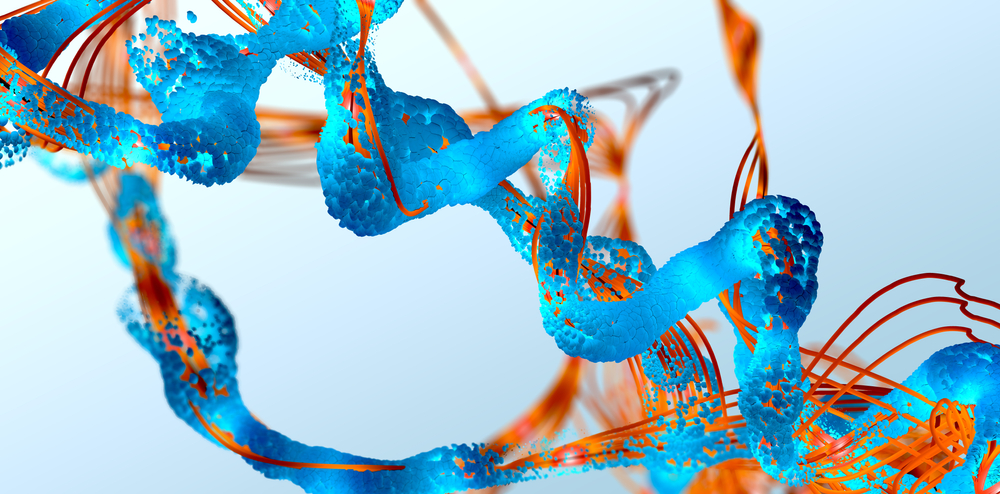London-based AI company DeepMind said it has nearly completed a database of almost every known protein, a breakthrough that is expected to significantly accelerate the time required to make biological discoveries, revolutionizing basic science.
In July 2021, DeepMind, which is owned by Google parent Alphabet, announced it had predicted the shape of all human proteins, helping to better understand human health and disease. That database has since been expanded 200-fold, and now contains more than 200 million predicted protein structures. In the year since its launch, more than 500,000 researchers around the world have accessed the AlphaFold database to view more than 2 million structures, the company said. The research community has already used AlphaFold for everything from understanding diseases, to protecting honey bees, to deciphering biological puzzles, to looking deeper into the origins of life itself. These structures are now available via a public database hosted by the European Bioinformatics Institute at the European Molecular Biology Laboratory.
Prediction of a protein’s structure from its DNA sequence alone has been one of biology’s greatest challenges. Current experimental methods to determine the shape of a single protein take months or years in a laboratory, which is why only about 190,000, or 0.01% of known protein structures, have been solved. DeepMind’s chief executive Demis Hassabis said the AI had “provided structural biologists with this powerful new tool now, where you can look up a 3D structure of a protein almost as easily as doing a keyword Google search”. “[It’s] opening up huge opportunities for AlphaFold to have impact on . . . sustainability, food insecurity and neglected diseases,” he added.
“As pioneers in the emerging field of ‘digital biology’, we’re excited to see the huge potential of AI starting to be realized as one of humanity’s most useful tools for advancing scientific discovery and understanding the fundamental mechanisms of life,” Hassabis said in a blog posting.
IN OTHER NEWS THIS WEEK
BIOTECH
Gingo Bioworks To Buy Zymergen
Gingo Bioworks as agreed to acquire fellow biotech and cell engineering company Zymergen for $300 million. Both companies have worked on developing products for the food and agriculture industries but more recently moved into healthcare. Its the end of a steep downhill trend for Zymergen, a World Economic Forum Tech Pioneer once valued at $3 billion after raising nearly $1 billion in venture funding before it listed on the Nasdaq stock exchange with a $500 million IPO. Zymergen aimed to use advances in machine learning, automation, genomics and molecular biology to manufacture novel materials.
MOBILITY
GM, Ford Seek Government Approval For Self-Driving Vehicles Without Steering Wheels
General Motors and Ford Motor have asked U.S. auto safety regulators to grant exemptions to deploy a limited number of self-driving vehicles without human controls like steering wheels and brake pedals. The National Highway Traffic Safety Administration published the separate petitions on July 27 and opened them for public comment for 30 days.
BMW Starts Selling Heated Seat Subscriptions
BMW is now selling subscriptions for heated seats in a number of countries — the latest example of the company’s adoption of microtransactions for high-end car features.A monthly subscription to heat your BMW’s front seats costs roughly $18, with options to subscribe for a year ($180), three years ($300), or pay for “unlimited” access for $415. BMW has slowly been putting features behind subscriptions since 2020, and heated seats subs are now available in BMW’s digital stores in countries including the UK, Germany, New Zealand, and South Africa.
FINANCIAL SERVICES
U.S. Banking Heavy Hitters Invest $20 Million In Low Code Platform Genesis
Bank of America, BNY Mellon and Citi have invested $20 million into the low-code platform, Genesis Global. Built especially for financial institutions, the platform speeds up the application development and in turn, the innovation process while also operating and upgrading complex legacy systems. With Genesis, banks across the software value chain can automate spreadsheet processes, enhance existing systems, replace legacy technology and build new, robust first-time applications. While low-code and no-code application development is not new, the combination of digital disruptions and hyperautomation is leading to rising demand, according to Gartner. In fact, low-code and no-code applications are quickly becoming the technology of choice for companies, according to the research and consulting firm. It predicts 70% of new applications developed by organizations will use low-code or no-code technologies by 2025, up from less than 25% in 2020.
COMMUNICATIONS
Deal Struck To Create European Satellite Rival to Starlink And Project Kuiper
Paris-based Eutelsat Communications agreed to acquire the U.K.’s OneWeb Global, a deal that would combine the two companies’ separate fleets of Internet-delivering satellites, helping Europe in its bid to achieve technology sovereignty and reduce its dependency on U.S. tech giant.The two European satellite companies will combine their fleets. Eutelsat will contribute its 36 so-called geostationary-orbit satellites to OneWeb’s fleet of 428 low-Earth-orbit satellites already in use. Elon Musk’s Starlink, operated by his Space Exploration Technologies Corp., or SpaceX, has a fleet of some 2,900 low-Earth-orbit satellites. Jeff Bezos has also entered the fray with Amazon.com Project Kuiper. OneWeb, Project Kuiper and Starlink are among a handful of businesses and government agencies racing to send broadband satellites into orbit, betting that in some cases and in some markets, they can compete with traditional broadband providers.
To access more of The Innovator’s News In Context articles click here.






